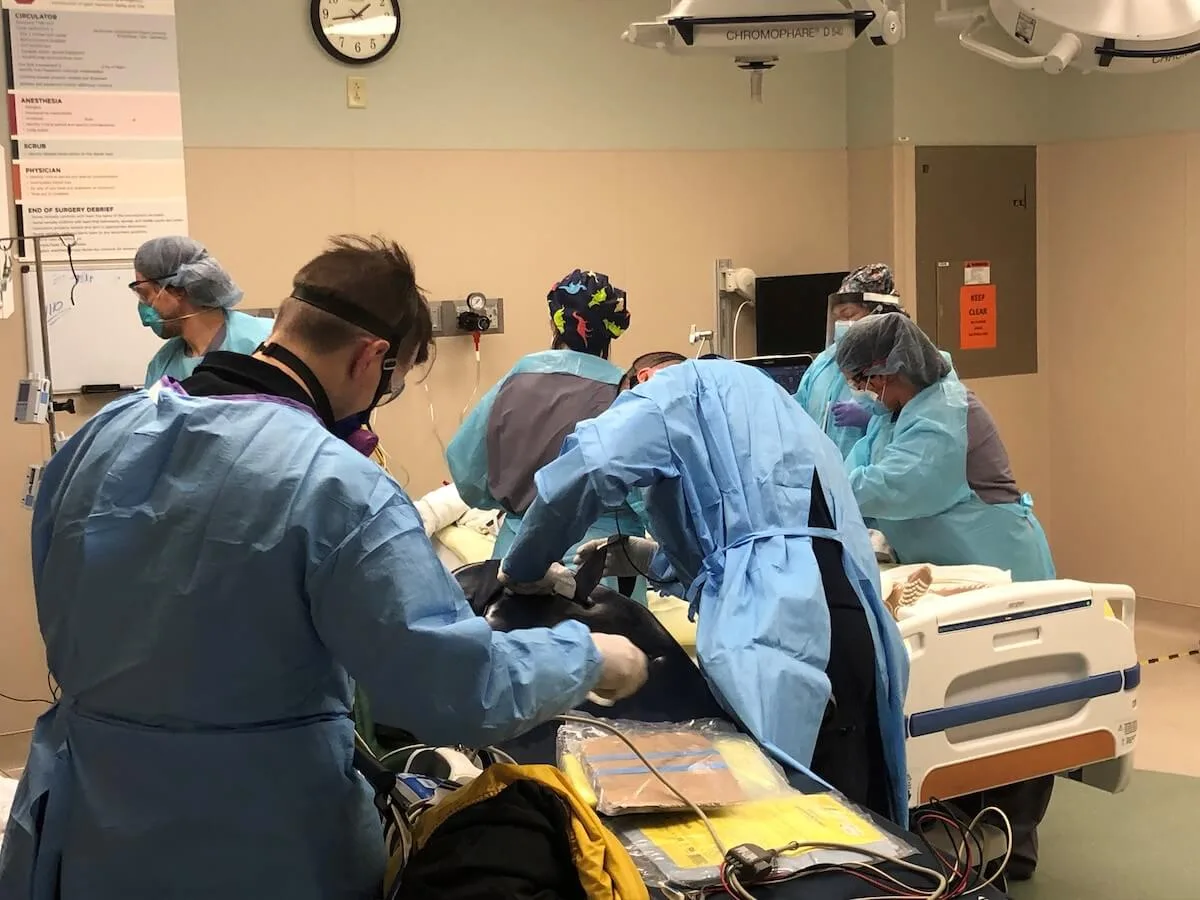
#image_title
Legislation set for Thursday vote in Assembly would limit health officers’ authority even as virus-related deaths continue rising in Wisconsin.
Public health officials in Wisconsin say Republican-backed measures scheduled for a vote in the Assembly Thursday would limit their authority to enact coronavirus-related protections and could lead to further illnesses and deaths from the virus, a figure that topped 5,000 on Wednesday.
Assembly Speaker Robin Vos (R-Rochester) announced Republicans’ COVID-19 bill package Monday, the same day Democrats unveiled their own COVID-19 proposals that includes significantly more efforts to protect against virus spread.
The Assembly is expected to approve the bill on Thursday after that body’s Health Committee voted 11-5 in favor of it Tuesday. Gov. Tony Evers, who previously introduced his own COVID-19 relief proposal, said he is likely to veto the bill.
The Republicans’ proposal would limit local health officers’ ability to restrict the number of customers in businesses during the pandemic to 14-day periods, unless county boards or city councils those officers report to grant them extensions, which would be limited to an additional 14 days.
The legislation would require that any COVID-19-related health orders need a two-thirds vote of governing bodies to approve such actions, and health officers’ would not have authority to limit religious gatherings. In addition, the legislation would not require employers to mandate vaccinations to protect against COVID-19 and would prohibit health officers from ordering those vaccinations.
“There are many concerns included in the proposed legislation from a local health department standpoint,” Eau Claire City-County Health Department Director Lieske Giese said. “The goal of public health is to slow the spread of communicable disease, and parts of this legislation don’t do that.”
Republicans praised the bill, saying it includes provisions intended to address the adverse impacts of COVID-19 on Wisconsin businesses, schools and other aspects of everyday life.
“Let’s join together to get this bill passed this week to give Wisconsinites the help they need,” Vos said in announcing the bill.
However, the state’s public health officials and others said the legislation lacks basic protections necessary to slow the spread of the virus and another potential surge similar to one that overwhelmed hospitals in the fall. Multiple health organizations, including the Wisconsin Public Health Association, the Wisconsin Association of Local Health Departments and Boards, and SEIU Healthcare Wisconsin, registered in opposition to the proposal.
Some provisions of the Assembly bill aren’t based on available information regarding COVID-19, Giese said. For instance, the 14-day maximum closure of businesses related to the virus isn’t long enough to prevent further infections, she said, noting medically speaking that figure should be at least 28 days.
“It is not at all connected to science,” Giese said of the business closure proposal and other parts of the legislation “and that is dangerous.”
Julie Zugenbuehler, who has worked as a nurse in Madison for nearly four decades, contracted COVID-19 last summer and was unable to return to work when her position was filled because she was out sick for too long. In her written testimony about the bill, she said the legislation lacks much-needed protections–including workers compensation and hazard pay–for healthcare workers.
“At the moment when Wisconsin is finally taking steps on a COVID relief bill, it is outrageous to learn that this proposed legislation does not address the needs of healthcare workers and first responders,” she said. “This bill does nothing to address the needs of frontline healthcare workers to ensure that we have what we need to make it safely through this crisis.”
Limits Likely to Spread Virus
John Robinson, a Marathon County Board supervisor who is chairman of that county’s Board of Health, said he objects to multiple facets of the proposed bill for one simple reason: They put people at risk.
“How does this help public safety? It doesn’t,” he said.
Striking a balance between public health and the need to keep the economy running is necessary, Robinson said. But the proposed legislation lacks enough health protections at a time when a post-Christmas virus surge could happen and a new strain of COVID-19 has surfaced, he said.
Robinson is among people critical of the Legislature’s inaction for most of last year to address the pandemic and the subsequent rush since the new legislative session began Monday to enact new regulations.
“They’ve had nine months to work on this,” he said. “To rush this through in three days, that’s not a deliberative, transparent process.”
County health directors have lobbied state lawmakers who represent their areas to remove portions of Assembly Bill 1 they said ignores the reality that the coronavirus is a highly contagious, deadly illness. Since it surfaced in Wisconsin in March, 494,747 state residents have tested positive for the virus, which has killed 5,039 statewide.
Portions of the bill they deemed would endanger public health–such as compelling teachers to be physically in school buildings–have been removed. But multiple provisions remain that are likely to add to virus spread. Reducing health officials’ authority only serves to further adverse impacts of the illness, they said.
AZ Snyder, Pierce County health officer, said limiting the authority of local health departments enacted into Wisconsin law in 1982 isn’t good public health policy, especially during a pandemic. Such measures as requiring a supermajority vote to enact COVID-19 protections “will make it very difficult to take immediate action to address communicable disease,” she said.
“I am already accountable to my county board, who have the power to dismiss me at any time,” Snyder said, noting additional oversight from and limitations by state lawmakers seems unnecessary.
Since the coronavirus surfaced in St. Croix County early last year, Public Health Officer Kelli Engen has urged–and sometimes pleaded with–people to refrain from gatherings and take part in other activities such as wearing face masks that reduce virus transmission.
Those actions often have sometimes been ignored, she said, and in some cases have prompted significant pushback, ranging from defiance of recommendations to angry confrontations. A group of St. Croix County residents has organized against COVID-19 protections measures, saying any recommendations related to the virus are an infringement on their personal freedoms.
Given the deaths and high infection numbers of the virus, efforts to curb health officers’ authority simply don’t make sense from a disease and science standpoint, Engen said.
“We need the statutory language (to oversee COVID-19 protections) not because we are power-hungry people who went into public health to rule,” she said, “but because we are here to serve and protect the health of all people in our jurisdictions. I can’t think of a better time than a pandemic to do just that.”

New Biden rules deliver automatic cash refunds for canceled flights, ban surprise fees
In the aftermath of a canceled or delayed flight, there’s nothing less appealing than spending hours on the phone waiting to speak with an airline...

One year on the Wienermobile: The life of a Wisconsin hotdogger
20,000+ miles. 16 states. 40+ cities. 12 months. Hotdogger Samantha Benish has been hard at work since graduating from the University of...

Biden makes 4 million more workers eligible for overtime pay
The Biden administration announced a new rule Tuesday to expand overtime pay for around 4 million lower-paid salaried employees nationwide. The...

‘Radical’ Republican proposals threaten bipartisan farm bill, USDA Secretary says
In an appearance before the North American Agricultural Journalists last week, United States Department of Agriculture (USDA) Secretary Tom Vilsack...




